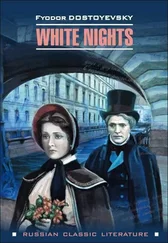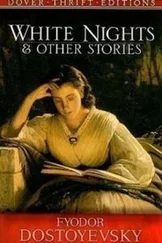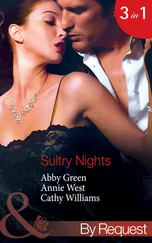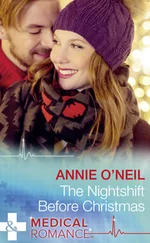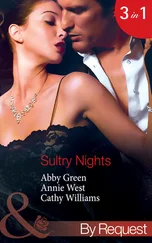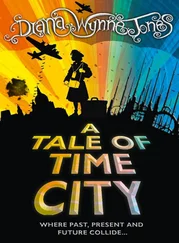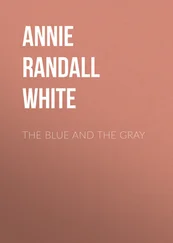Annie DeWitt - White Nights in Split Town City
Здесь есть возможность читать онлайн «Annie DeWitt - White Nights in Split Town City» весь текст электронной книги совершенно бесплатно (целиком полную версию без сокращений). В некоторых случаях можно слушать аудио, скачать через торрент в формате fb2 и присутствует краткое содержание. Год выпуска: 2016, Издательство: Tyrant Books, Жанр: Современная проза, на английском языке. Описание произведения, (предисловие) а так же отзывы посетителей доступны на портале библиотеки ЛибКат.
- Название:White Nights in Split Town City
- Автор:
- Издательство:Tyrant Books
- Жанр:
- Год:2016
- ISBN:нет данных
- Рейтинг книги:5 / 5. Голосов: 1
-
Избранное:Добавить в избранное
- Отзывы:
-
Ваша оценка:
- 100
- 1
- 2
- 3
- 4
- 5
White Nights in Split Town City: краткое содержание, описание и аннотация
Предлагаем к чтению аннотацию, описание, краткое содержание или предисловие (зависит от того, что написал сам автор книги «White Nights in Split Town City»). Если вы не нашли необходимую информацию о книге — напишите в комментариях, мы постараемся отыскать её.
Annie DeWitt
Granta
Believer, Tin House, Guernica, Esquire, NOON
BOMB, Electric Literature
American Reader
Short: An International Anthology
Gigantic
Believer
White Nights in Split Town City — читать онлайн бесплатно полную книгу (весь текст) целиком
Ниже представлен текст книги, разбитый по страницам. Система сохранения места последней прочитанной страницы, позволяет с удобством читать онлайн бесплатно книгу «White Nights in Split Town City», без необходимости каждый раз заново искать на чём Вы остановились. Поставьте закладку, и сможете в любой момент перейти на страницу, на которой закончили чтение.
Интервал:
Закладка:
“Take one for the road, Billie,” Fender said, pulling the honey stick from between his teeth and handing me the open end. I put my mouth over the stick and licked at the tip.
Otto looped his arm around my shoulder and brushed the front of my chest as though marking some kind of territory. “Get one of your own,” he said to Fender before disappearing out back.
“Don’t plan on it,” Fender called after him.
5
The hay wasn’t the only thing growing early into the summer. That June, Father ordered a riding mower to keep up with the lawn. He’d been working overtime at Data General, the software engineering plant on Route 9. The riding mower came straight off the truck, factory direct. Being that we lived so far out of town, most items Father ordered had to be picked up at the Post. The rider was so large that UPS made a special delivery. The truck labored up the mountain. From a distance, I thought, it looked like one of the ready-made houses I’d seen tractor-trailers haul on the highway, the house expanding on the horizon the closer it came.
Father’s rider came in a large cardboard box lined with a thin plywood plank. He kept the box in the garage until Mother threatened to return the mower along with it if Father didn’t break down the packaging and take the refuse to the dump. The flower show was the following weekend, she said. The Separatists had ordered mums which they planned on storing in our garage.
The day after the flowers arrived, Mother went to church. The Separatists had organized a car wash after the service. The women, Father joked, planned on stashing the leftover cash for a trip to Palm Beach the local circular had been advertising.
The box was large enough that, side-by-side, Birdie and I could lie down in it. While Father was out mowing, Birdie and I snuck into the garage and made off with the box, carrying it on our shoulders along the riverbed to the far side of the marsh.
When we arrived, the green bottle was exactly as I had left it. Birdie and I dragged the box under the tree and cut a door out of the cardboard. I scored along three sides of the rectangular opening with Mother’s gardening scissors and bent the box back so the crease served as a hinge. The rest of the afternoon Birdie and I gathered stones to mark off the perimeter. As we worked, the white branches of the birch crept into shadow. By the time we made our way up hill from the marsh, dusk was heavy along the horizon. Floodlights overlooked the back porch.
As we approached the Bottom Feeder, Father was playing the piano. In the background I could hear high-pitched laughter and the clinking of cans. I ditched the gardening scissors in the crawlspace beneath the garage and washed under the spigot, running my hands over Birdie’s legs to scrub away the mud. Several welts were forming where the bugs had broken skin.
Together we stood on the back deck to survey our progress. If you leaned over the railing and trained your eyes along the riverbank, beyond the outer reaches of the floodlights, you could just make out the faint gleam of the rocks we had gathered, the white patches of mineral glinting in the dusk.
As we entered the kitchen, Callie was standing in the portico leaning over the piano. One hand on Father’s shoulder. The other hovered over the songbook. Otto sat in the recliner in back of them. He kept time with his knuckles. A row of beer cans lined the cedar chest where Father kept his music. Father was singing a song about the things people needed.
“Join us, baby,” Callie called to me in the doorway. “Your old man was just playing us some of his standards.” Faded jeans rode halfway up her stomach. Her undershirt was pulled tight over her bra and tucked into the front of her pants.
“We’ve been out at the barn all day loading the loft,” Otto said. “Your father invited us over to blow off some steam.”
“Otto says he’s heard you practice,” Father said.
Otto smiled. “Play us something,” he said.
I played the last piece in the book just as I’d heard it. Father stood behind me. Otto sat in the chair with Birdie in his lap. After the first several bars, Callie lost track and gave up on the pages. She sat next to me on the piano bench and hummed along. The piece didn’t come with any words, just several repeating passages, which I played best I could remember.
“Wouldn’t want anything to happen to an ear like that,” Otto laughed when I finished.
6
Otto called the next morning to say the Shetland was dead. Father set out across the road before sunup to help dispose of the body. Otto wanted to get the carcass in the ground before word made its way around the stable. “Found that pony lining its own stall when I opened the barn to put the feed out,” he said. “Its nose still warm from breath.”
When Father got home, Mother made him strip down and clean up outside under the spigot. They’d wrapped the Shetland’s body in feedbags and buried it in Otto’s south pasture, Father said. The old ceramic tub that had once served as a water trough marked the grave.
The image of the pony in the ground did not sit well with Mother. Lately, on nights when Father was sleepless and incapable of stepping away from the world, he slipped out the slider door onto the little deck that abutted their bedroom. Mother said she often awoke to Father’s absence. In those moments, a strange stillness gripped her. The air was too light for her lungs. She could see the image of her husband’s back on the porch in the blackness. Father took a pillow with him. The mornings after these nights, his voice was hoarse and scratchy.
“You sound faded,” Mother said one morning at breakfast.
Screaming, Father said, released a chemical in his body that allowed his mind to find the emptiness in the world. Mother had mentioned Father’s habit once, in passing, to Margaret and then regretted it.
“Dumping,” Margaret said. “It’s a psychological device like blowing up a bag and then popping it. The pressure deflates.”
Mother wasn’t sure what pressures existed in the country to be deflated.
“Don’t look so alarmed, dear,” Margaret promised. “To be natural is such a very difficult pose to keep up.”
“Where’s that from?” Mother had said.
“Wilde,” Margaret said. “‘ The Ideal Husband .’”
“What else,” Mother laughed.
As the summer wore on, animals of all kinds disappeared from the fields. Livestock were kept indoors to suffer the humidity away from the threat of airborne illness. During the daylight hours, the only forms dotting the landscape were the farmers in their flatbeds, the backs of their tires shooting up mud as they barreled around the fields to gather the bales of hay. The town grew quiet as people settled into an unspoken curfew. Even Ada took to wearing a straw hat over which she draped a piece of cheesecloth to protect her face from the bugs during those lulls in the game when she settled into sleep as Wilson fingered the checkers, mulling over his next move.
Callie was the only woman I saw disrobe that summer. Mornings Callie lay out on Otto’s front lawn in her bikini before the day reached noon. The curve of her thighs and the flat of her stomach shone with oil. I passed the afternoons awaiting the sound of the occasional wood-paneled station wagon rumbling over the gravel, come to park at the base of the trail for a hike or a picnic over the butte. Even the milkman dropped our road from his circuit. If Mother wanted eggs, she had to send word via a form the postman delivered to the dairy. From a bird’s-eye view, our town might’ve resembled Ada and Wilson’s checkerboard; those people that moved did so with a worn-out deliberation.
Mother regarded the road with suspicion. She and Father sat in bed at night leafing through the local paper. To Mother, even the front page stories read like fiction. They reminded her, she said, of Birdie’s first trip to the train station. We’d made the voyage to visit Granny Olga in the city. Mother had wanted to see her daughter baptized in the old church. In the elevator on the way to the platform, Birdie had pointed to a man standing next to her. “Mommy,” she’d said. “Why is that man’s skin brown?” The elevator had been packed. There was no way the man had not overheard it. He shifted his weight, tugging on the edge of his suit jacket. “Country folk,” I’d heard him say to his companion as they exited the elevator. “Haven’t seen a shadow of the world bigger than their own two feet.”
Читать дальшеИнтервал:
Закладка:
Похожие книги на «White Nights in Split Town City»
Представляем Вашему вниманию похожие книги на «White Nights in Split Town City» списком для выбора. Мы отобрали схожую по названию и смыслу литературу в надежде предоставить читателям больше вариантов отыскать новые, интересные, ещё непрочитанные произведения.
Обсуждение, отзывы о книге «White Nights in Split Town City» и просто собственные мнения читателей. Оставьте ваши комментарии, напишите, что Вы думаете о произведении, его смысле или главных героях. Укажите что конкретно понравилось, а что нет, и почему Вы так считаете.
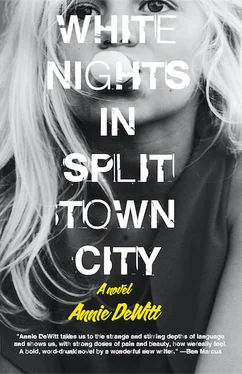
![Элизабет Ленхард - Свидание со смертью[Date With Death]](/books/79651/elizabet-lenhard-svidanie-so-smertyu-date-with-dea-thumb.webp)



